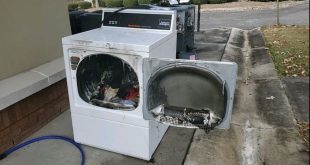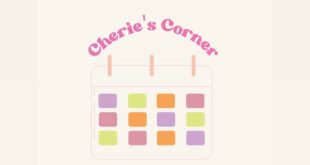EDITOR’S NOTE: This letter was written by Dr. JT Cox, a professor in the College of Education and Human Services and was submitted to the Editors-in-Chief. The opinions in this letter are expressed by Dr. Cox and not necessarily those of The Spectator and its staff.
An Open Letter to Future Teachers and Revolutionaries*
*(Yes, this is a message for those who think they might like to teach and for those who know they want to change the world.)
Dear Comrades,
I write to you with some urgency. You see, I am charged, among other things, with recruiting future teachers for the state of Georgia, and this is no easy task, given the circumstances. Historically, this is quite possibly the worst period for American teachers since the latter part of the 19th Century when we were told we couldn’t marry or be in the ice-cream parlors past 8 p.m.
Here are just a few of the current challenges facing America’s teachers:
Classrooms are becoming increasingly scripted, and teachers are making fewer and fewer decisions about what to teach and how to teach it. Testing and, more to the point, the testing industry have a near-complete stranglehold on K-12 instruction. High stakes standardized testing, while demonstrably damaging to students and learning, is now the measure to beat all measures, and the entire public school agenda now revolves around preparation for these tests.
For teachers, more than half of their annual performance evaluations are tied to their capacity to achieve increases in these test scores. Due to corporate copyrights, teachers are not even allowed to see these tests, and the students themselves have to enter into confidentiality agreements and wait months to receive their results. Anyone who knows anything about assessment knows also that this constitutes educational malpractice.
As if all this weren’t ugly enough, the current teacher evaluation systems in place in several states (including Georgia) ultimately hold teachers accountable for circumstances and conditions over which they have no control (i.e. the students’ physical and emotional health, home lives, study habits, exercise habits, sleep habits, diet, and let’s not forget socio-economic status – all factors that go into producing a test score).
Teachers have lost or are losing job security in the form of tenure or continuing contract. Graduate degrees are no longer worth much (if anything) in the way of salary increases, and even national-board-certified teachers are left only with “congratulations!” as their compensation.
In the media, teachers are derided en mass as lazy, incompetent, and self-serving – in other words, very much like the politicians who make policy for the public schools while knowing next to nothing themselves about teaching and learning. In fact, two candidates for U.S. president have both recently made derogatory remarks about teachers, one of whom has suggested that teachers be put on minimum wage and given zero benefits.
This asinine rhetoric is not incidental. Many policy makers are using the “bad teacher” narrative to help bring down the public schools and hand them over to private corporate and chartered interests. And they are succeeding, slowly but surely. Thus, my sense of urgency in writing to you.
Think about all those high-stakes, prepackaged tests you took, starting in the third grade. Think about the skyrocketing costs of your college tuition, books, and fees. These things are each manifestations of the corporate agenda and the defunding of public education.
So, yes, this is a bad time for teachers and students, and there is currently not much to recommend in the profession, except for the students themselves. Inviting you such as I am to become a teacher is perhaps like welcoming you to the dentist’s chair for some root canal work, or inviting you to be voluntarily water-boarded. How does an unguided mid-summer tour of the Australian Outback sound? The Sahara Desert? A winter season in Siberia? Would you like to tour Gitmo as an inmate? How about a shin manicure?
Indeed, it is not a good time for teachers, which is why we need good teachers more than ever. I’m inviting you to become a teacher because American public education needs you, because it is worth fighting for, and, perhaps most importantly, because things don’t have to stay the way they are. We can make positive changes in the public schools if enough of us are willing to work and stand together.
More and more teachers, parents, and students throughout the United States are opting out of high-stakes testing and advocating for professional autonomy for teachers and meaningful learning environments for our children. Together, we can subvert, divert, and defeat the corporate agenda, which is why I am not just looking for any old future teacher today – I need the revolutionary ones most of all. I need fighters in a just and worthy cause.
But first, here are the basic requirements for any candidate seeking Georgia state certification via the Department of Middle, Secondary, Reading, and Deaf Education at VSU:
- You need to have a minimum cumulative GPA of 2.75, with a GPA of 3.0 across your content-area classes.
- You need to meet the content course requirements for each subject concentration (undergrads) and degrees (graduate students).
These are the must haves in any teaching candidate, revolutionary or otherwise. So what else do many of us in teacher education (certainly not all) like to see in applicants to our programs? I’m happy you asked.
Here’s what we want:
- Curious, smart, creative, passionate, free-thinking, literate, and articulate individuals who understand the critical importance of free and accessible education both to individual prosperity and the preservation of liberty in a democratic republic
- Candidates who are ready to take their content knowledge and turn it in to authentic learning experiences for their students
- Candidates who are professional and who insist on being treated as such
- Candidates who are willing to advocate for their students and challenge educational policies and social norms that are not in their best interests
Here’s what we don’t need:
- Natural born bureaucrats (we have plenty of these already)
- The obsequious and the sniveling
- Those born and raised in – and who remain attached to – the Culture of Obedience
- People for whom ideas and innovation are perfect strangers
- The excessively shy (you need to be able to speak publicly and manage large groups of people)
- Control freaks, screamers, and other kinds of neo-fascists (“manage” does not mean “oppress”)
- People who have only a superficial knowledge of their content areas and no interest in deepening and widening both their personal and professional knowledge and experience
Finally, let me leave you with this:
As Americans, we are the sons and daughters of revolution. We are jealous guardians of our sovereignty and our right to self-determination, and we’re not afraid to throw off oppressive people and systems (when we finally decide to do so). So why should we stand idly by while our public schools – traditional bulwarks against tyranny and despotism – are increasingly centralized, privatized, and standardized? Is this any way to help develop future citizens?
Should we all think alike, march in step, read the same books, write the same papers, listen to the same music, think the same thoughts? There are many in this country, policy makers and their corporate masters especially, who think the answer to these questions is “yes,” and for the simple reason that “yes” means a greater profit margin and a much-decreased capacity among the citizenry to resist and think independently for themselves.
If, however, your answers to these questions are “no,” then you may very well be the kind of teaching candidate we desperately need in these difficult times. If your answer to privatization, standardization, corporatization, and non-stop testing is “no,” then come see us. We have much to discuss and much to do.
Yours sincerely and in solidarity,
JT Cox, Ph.D.
Assistant Professor
Coordinator, Master of Arts in Teaching Program
Department of Middle, Secondary, Reading, and Deaf Education
College of Education and Human Services
 The Spectator The independent student newspaper of Valdosta State University
The Spectator The independent student newspaper of Valdosta State University





